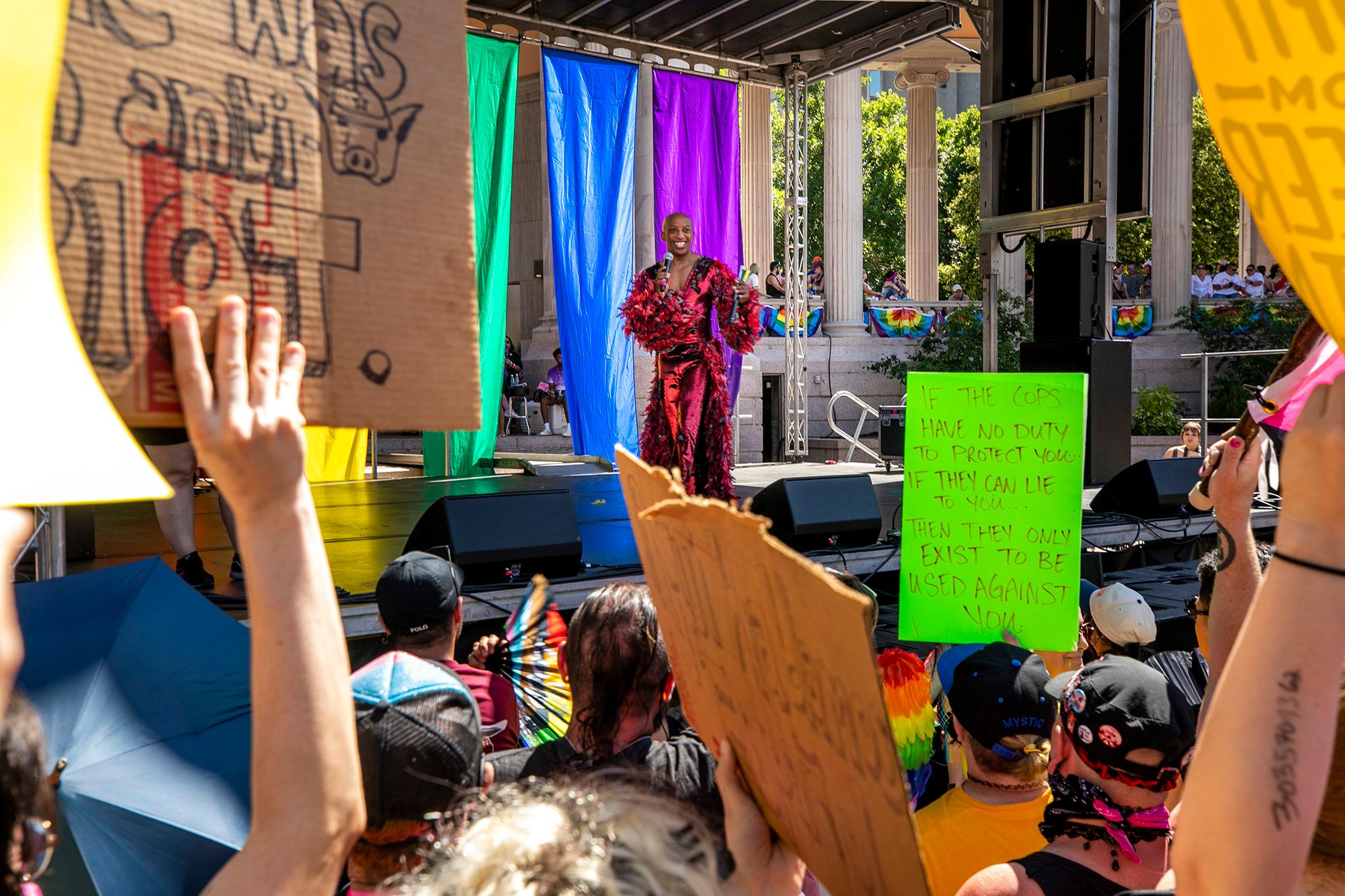When Janeshly Algarin was led to a table decorated with balloons and tinsel and handed a card to read at Denver's PrideFest on Saturday, she thought she was participating in a performance at the annual event in Civic Center Park.
"I was like, 'What is happening?'" Algarin said. "And then I saw my name."
As Algarin looked up, her partner of four years, Iyan Nario, knelt on the ground while holding a ring. Did Algarin want to get married?
Algarin said yes: "I was shaking -- [I] still am."
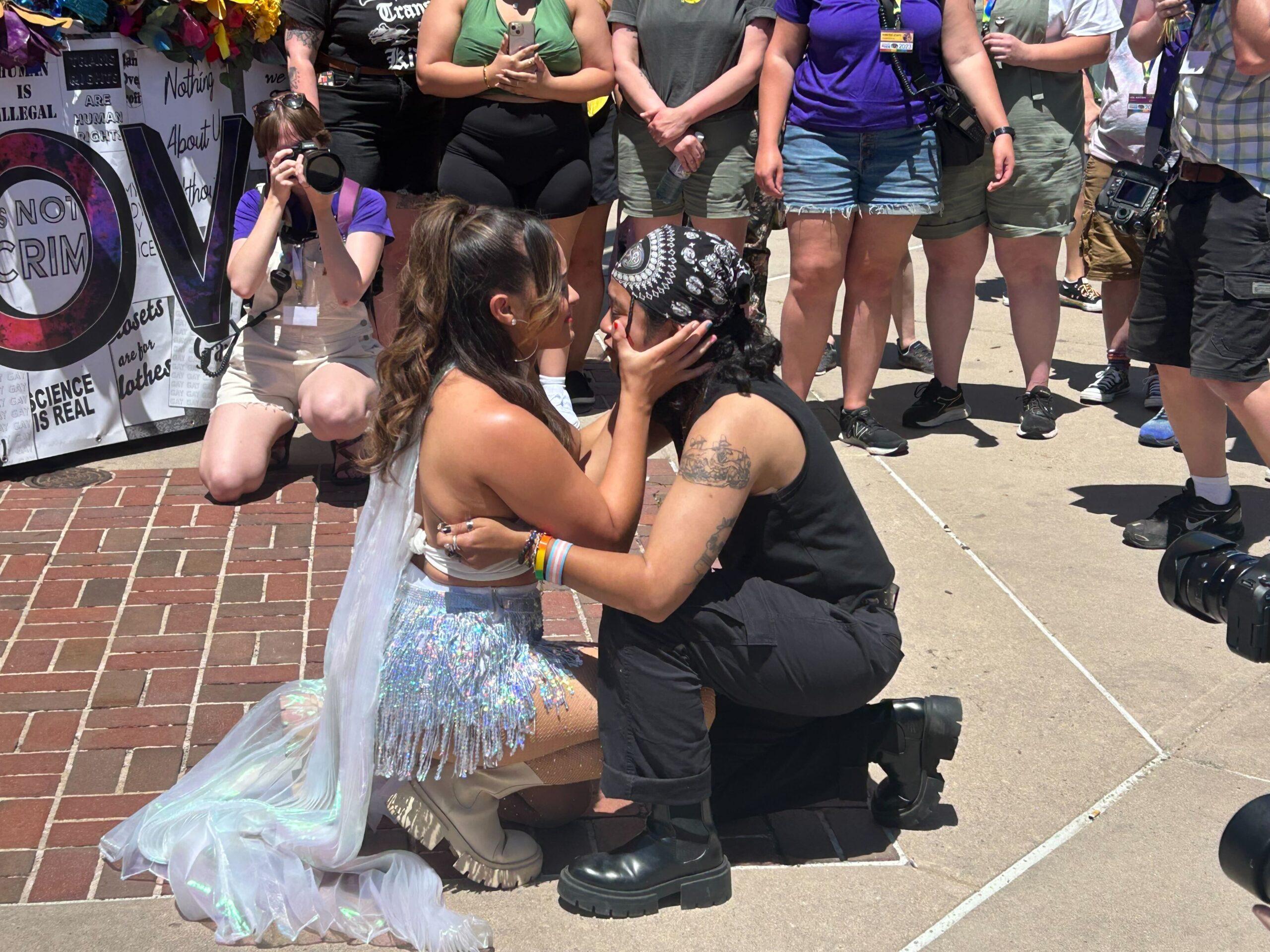
The couple moved to Denver from Florida about a year ago when Algarin got a job at a local digital marketing company. But the move to Colorado was also about finding safety, opportunity and health care. Nario, the Coordinator of Youth Services at The Center on Colfax, is receiving hormone replacement therapy, a treatment that has been criminalized under Florida law after current governor and Republican Presidential candidate Ron DeSantis signed a series of anti-LGBTQ bills.
For the 48th PrideFest, organizers wanted to celebrate acceptance and inclusion amid anti-LGBTQ rhetoric nationwide in this year's theme -- Proud Out Loud.
"We chose that theme because this year we've seen so much anti-LGBT legislation across the country," said Rex Fuller, CEO of The Center on Colfax, which has organized the event since 1990.
The event came just seven months after a person opened fire at Club Q, an LGBTQ club in Colorado Springs, killing five people and shooting 17 others.
"We felt that our theme really reflected the need for the community to come together and support one another during what has, at times, been very difficult," Fuller said.
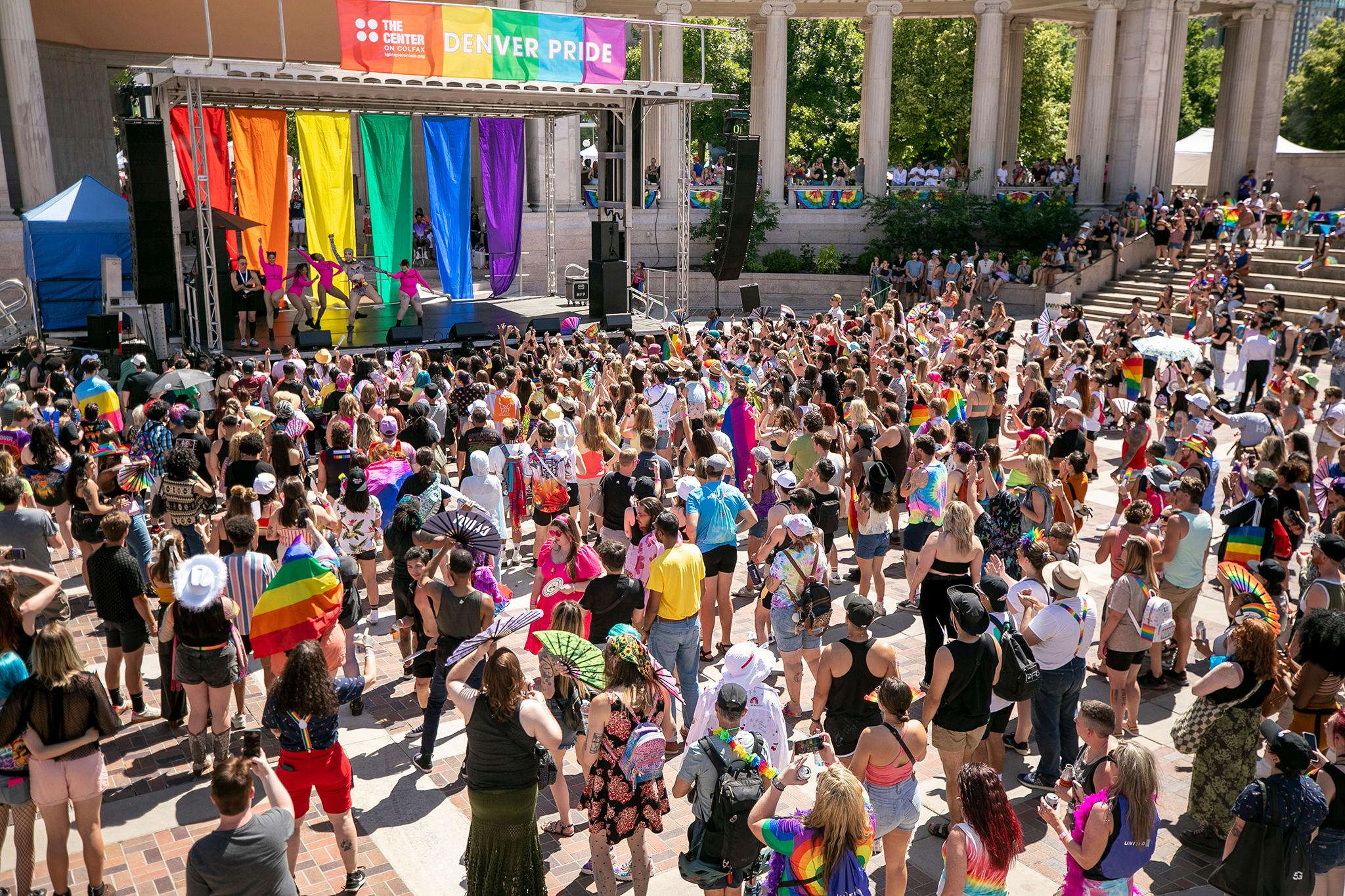
For DeMarcio Slaughter, the emcee and entertainment director for PrideFest's center stage, Pride is about giving back to the community, and to himself. Growing up in Arvada, he didn't feel included, but volunteering with The Center on Colfax for over 20 years has given him the support he needed.
"As a person of color, I take this as a huge responsibility to represent not just Black people but my gay brothers [and] my lesbian sisters," he said. "It really is about recognizing that even though we are different, we can come together to celebrate love and understanding and have a little bit of education and acceptance along the way."
Protest and corporate sponsorship
While festival goers wandered the rainbow-flag adorned tents in Civic Center Park, a group rallied across Broadway on the steps of the State Capitol building. The group, Rise Up Trans Rights, organized the protest against the presence of police and the involvement of corporations in the event.
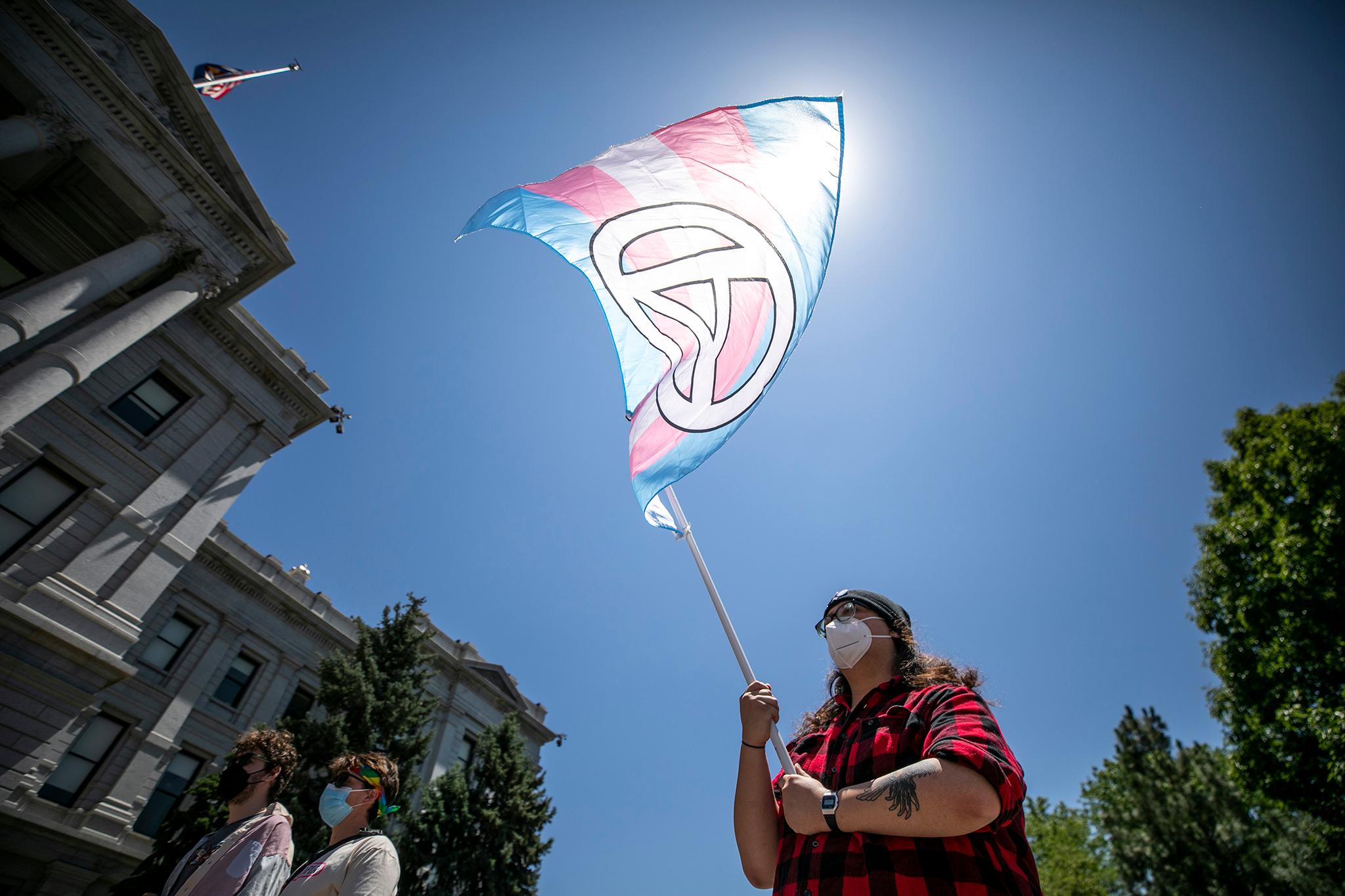
"In the early 70s here in Denver there was also a lot of police harassment of the LGBTQ community," Fuller told CPR's RealTalk. By 1973, "there was a massive protest that took place at City Council, really protesting that police harassment."
The protest spawned a culture of local activism that shaped Denver Pride. However, many people in the LGBTQ community today still feel threatened or have been harassed by law enforcement.
Several major companies have faced public backlash in recent months for their inclusion of LGBTQ people in products and advertisements. Target announced in May that it was pulling some Pride-themed merchandise from its shelves after altercations between customers and employees. While Anheuser-Busch, the maker of Bud Light, faced boycotts from conservative Americans after the company partnered with transgender influencer Dylan Mulvaney. The company put two of its executives on leave and had its high LGBTQ rating reduced by the Human Rights Foundation Campaign.
Coors Light was the main sponsor of Denver's PrideFest this year. A spokesperson told Axios Denver that the company has long been a sponsor of the festival and will continue to do so going forward.
Some protestors still bristled at the presence of corporations in the festival.
"We are not represented by Coors. We are not represented by all these corporations that are here at Pride today," said Lucas Evans, lead organizer of the Rise Up Trans Rights protest.
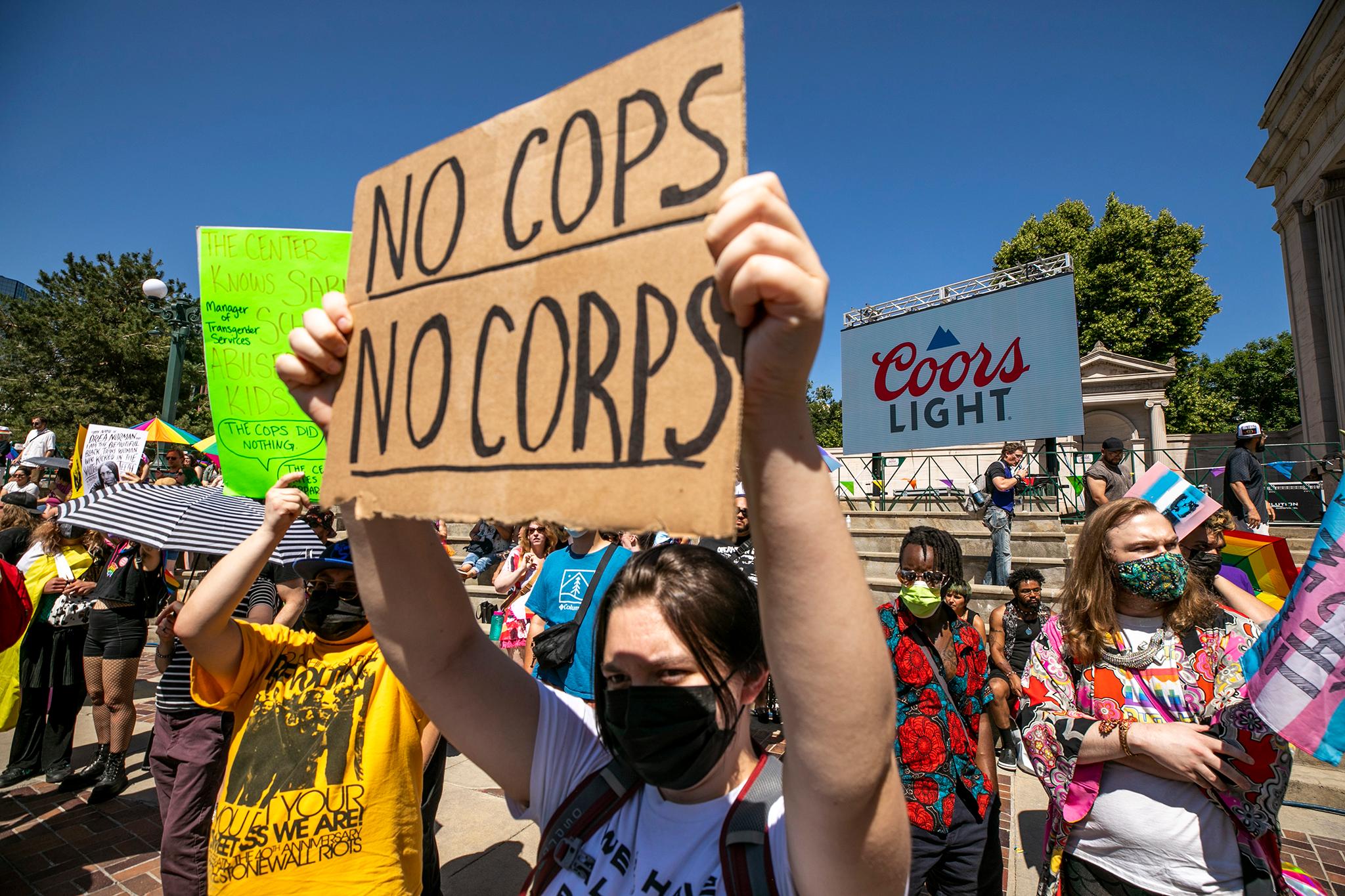
The companies involved in Denver's Pride included Coors, Verizon, AARP, Nissan, Walmart and many others. (Colorado Public Radio was a community partner.) Corporate sponsorship is important, according to Fuller, who previously told CPR News that those sponsors help fund The Center on Colfax's year-round programs that serve LGBTQ people of all ages.
"Corporate sponsorship is a very important part of how they are able to make a successful festival happen," Fuller said, noting that the free festival is one of the center's most important revenue streams.
The Sunday parade
During the parade on Sunday, protests continued, albeit in smaller and less organized forms.
While waiting for their section of the parade to begin marching, Wyatt Kent, a drag queen known as Potted Plant, used a megaphone to yell at a nearby cop.
"Bottom or top, we all hate the cops," Kent and others nearby chanted.
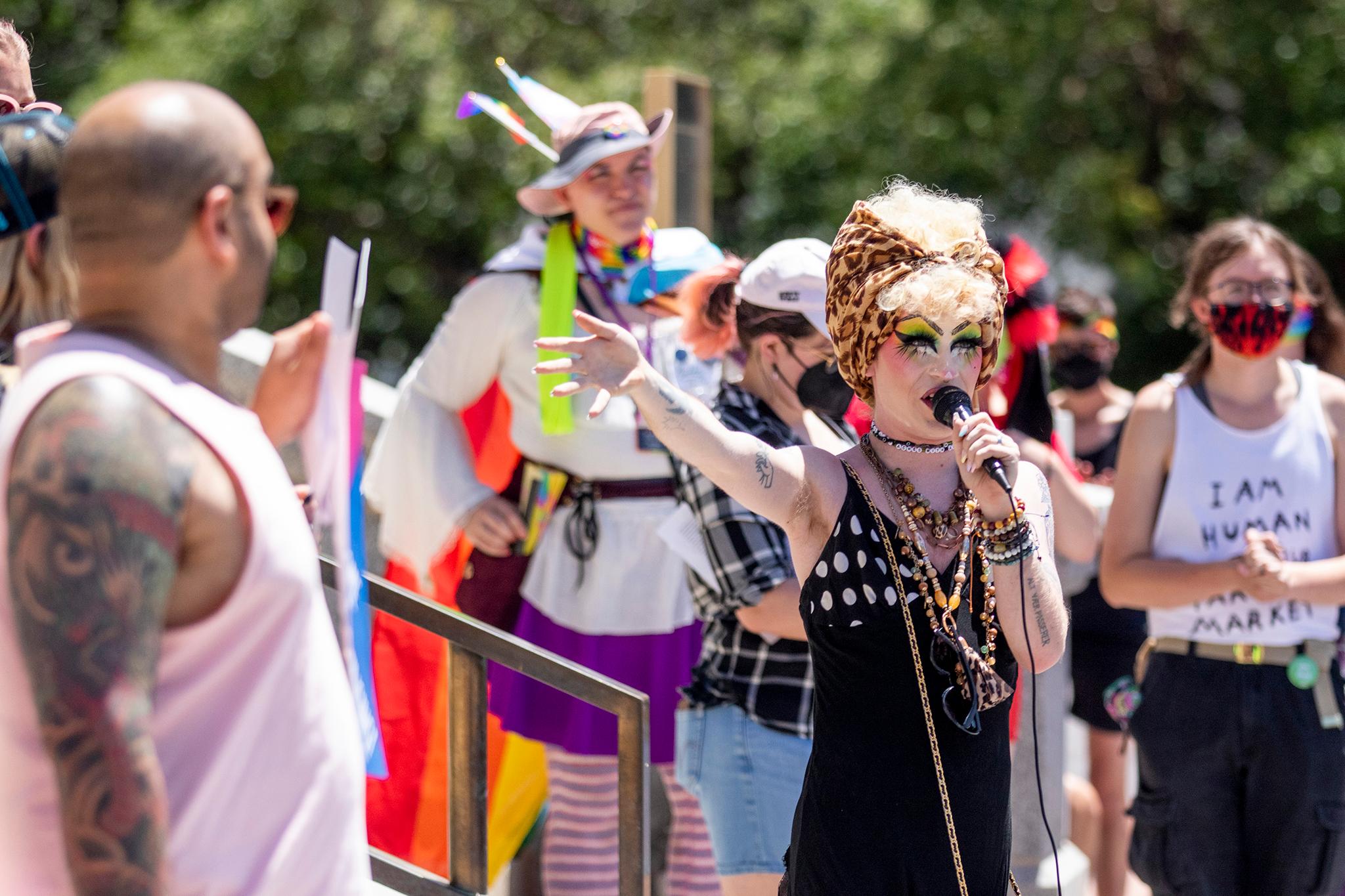
Despite the heavy police presence, Kent said they thought it was important to participate in Pride this year. They were part of a group of Club Q survivors who were among the grand marshals for this year's parade.
Kent was performing last November when the shooter entered the club. Kent's partner, Daniel Aston, was among those killed.
"It's very important for us as a community who are threatened every single day to show up for each other and show up against those systemic and societal forms that shut us down and that persecute us and prosecute us, because we as a community are hurting," Kent said. "We as a community need help. We do not need cops."
